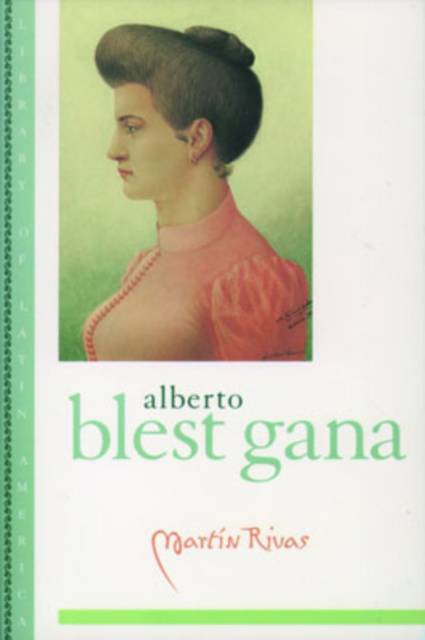
Bedankt voor het vertrouwen het afgelopen jaar! Om jou te bedanken bieden we GRATIS verzending (in België) aan op alles gedurende de hele maand januari.
- Afhalen na 1 uur in een winkel met voorraad
- In januari gratis thuislevering in België
- Ruim aanbod met 7 miljoen producten
Bedankt voor het vertrouwen het afgelopen jaar! Om jou te bedanken bieden we GRATIS verzending (in België) aan op alles gedurende de hele maand januari.
- Afhalen na 1 uur in een winkel met voorraad
- In januari gratis thuislevering in België
- Ruim aanbod met 7 miljoen producten
Zoeken
Omschrijving
Widely acknowledged as the first Chilean novel, Martin Rivas (1862) by Alberto Blest Gana (1830-1920) is at once a passionate love story and an optimistic representation of Chilean nationhood. Written shortly after a decade of civil conflict, it is an indispensable source for understanding politics and society in nineteenth-century Chile.
The hero of the story is Martin Rivas, an impoverished but ambitious youngster from the northern mining region of Chile, who is entrusted by his late father to the household of a wealthy and influential member of the Santiago elite. While living there, he falls in love with his guardian's daughter. The tale of their tortuous but ultimately successful love affair represents the author's desire for reconciliation between Chile's antagonistic regional and class interests. Indeed, many critics have interpreted Martin Rivas as a blueprint for national unity that emphasizes consensus over conflict.
In addition to providing commentary about the mores of Chilean society, Blest Gana documents the enormous gap that existed between the rich and poor classes. An invaluable text for its portrayal of contemporary social, political, and class conditions, Martin Rivas illustrates the enriching influence that romanticism had on nineteenth-century Chilean literature.
The hero of the story is Martin Rivas, an impoverished but ambitious youngster from the northern mining region of Chile, who is entrusted by his late father to the household of a wealthy and influential member of the Santiago elite. While living there, he falls in love with his guardian's daughter. The tale of their tortuous but ultimately successful love affair represents the author's desire for reconciliation between Chile's antagonistic regional and class interests. Indeed, many critics have interpreted Martin Rivas as a blueprint for national unity that emphasizes consensus over conflict.
In addition to providing commentary about the mores of Chilean society, Blest Gana documents the enormous gap that existed between the rich and poor classes. An invaluable text for its portrayal of contemporary social, political, and class conditions, Martin Rivas illustrates the enriching influence that romanticism had on nineteenth-century Chilean literature.
Specificaties
Betrokkenen
- Auteur(s):
- Vertaler(s):
- Uitgeverij:
Inhoud
- Aantal bladzijden:
- 448
- Taal:
- Engels
- Reeks:
Eigenschappen
- Productcode (EAN):
- 9780195107142
- Verschijningsdatum:
- 13/01/2000
- Uitvoering:
- Paperback
- Formaat:
- Trade paperback (VS)
- Afmetingen:
- 140 mm x 216 mm
- Gewicht:
- 557 g

Alleen bij Standaard Boekhandel
+ 177 punten op je klantenkaart van Standaard Boekhandel
Beoordelingen
We publiceren alleen reviews die voldoen aan de voorwaarden voor reviews. Bekijk onze voorwaarden voor reviews.









